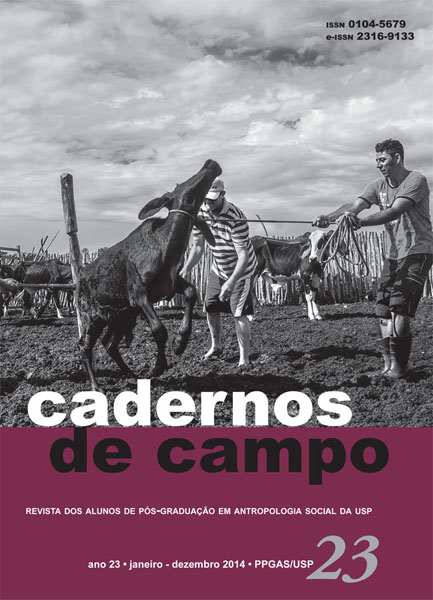Entrosar-se, an Afroindigenous ethnographic reflection about mutual implication
DOI:
https://doi.org/10.11606/issn.2316-9133.v23i23p257-270Keywords:
Afroindigenous, Quilombo Survivors, Mythic landscape, Body, Comparative method, Pará.Abstract
By questioning the apparent straightforwardness of Afroindigenous anthropology and acknowledging its vulnerability to identitary analyses, this article seeks to make explicit the comparative potential of this approach. To abstract this end, an ethnographic reflection is presented about the processes of identification and differentiation found among the Filhos do Erepecuru – riverine-extractivist-coletivos-quilombo-survivors from the Lower Amazon Mesoregion, Brazil. An analysis is offered about the native concept of entrosamento (relational implication), through the Filhos’ myth of ancestral arrival on the Erepecuru and their conceptions about the instability of places and bodies, which points to the importance of relations based on alterity and control. This piece thus uses the points of connection and contrast between ethnographies about Amerindian and African matrix peoples to outline the importance of the mechanism of control for the comparative method and, accordingly, for an Afroindigenous anthropology.Downloads
Download data is not yet available.
Downloads
Published
2014-12-31
Issue
Section
Special Section
License
I authorize Cadernos de Campo Journal of Anthropology to publish the work of my authorship/responsibility, as well as I take responsibility for the use of images, if accepted for publication.
I agree with this statement as an absolute expression of truth. On my behalf and on behalf of eventual co-authors I also take full responsibility for the material presented.
I attest to the unpublished nature of the work submitted
How to Cite
Sauma, J. (2014). Entrosar-se, an Afroindigenous ethnographic reflection about mutual implication. Cadernos De Campo (São Paulo, 1991), 23(23), 257-270. https://doi.org/10.11606/issn.2316-9133.v23i23p257-270





